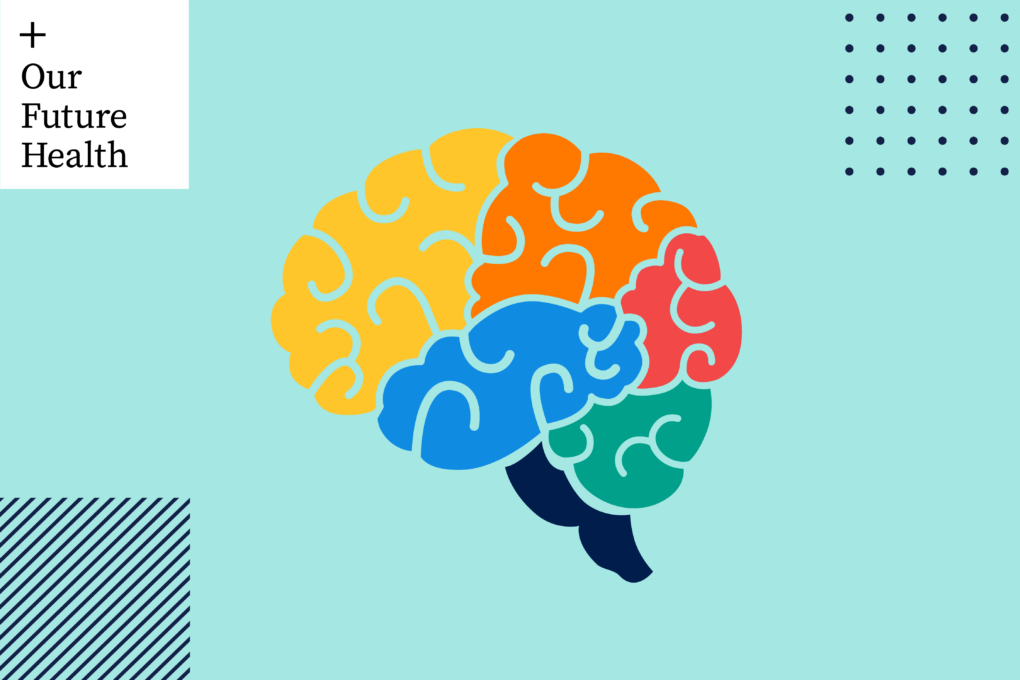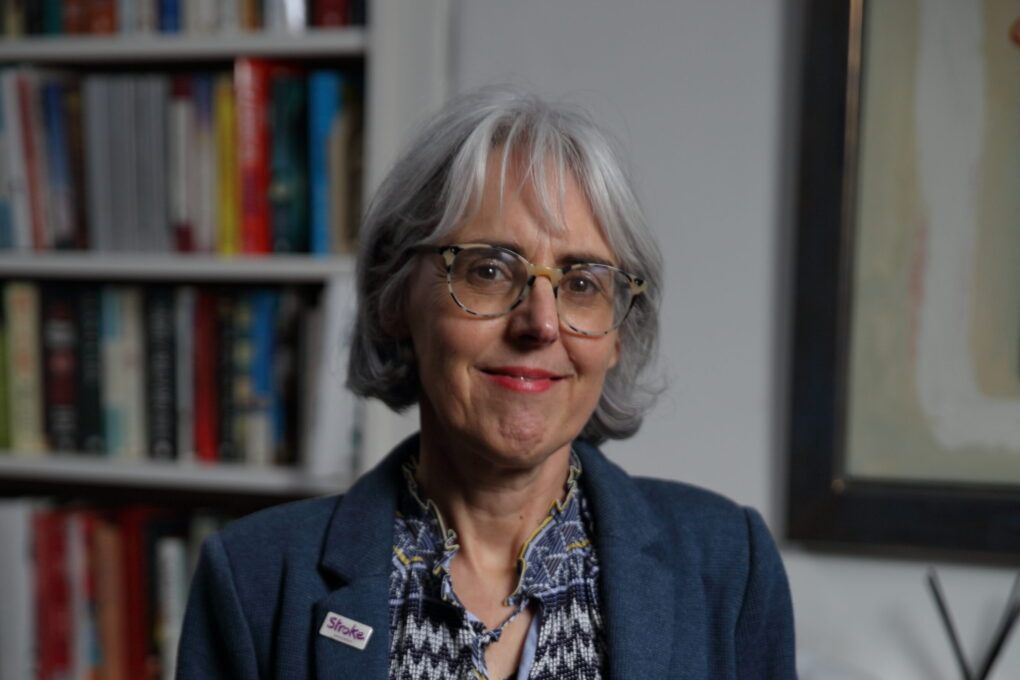How Our Future Health will help prevent strokes before they happen

If you know someone who’s had a stroke, you’ll know that the results can be devastating.
Stroke is the second largest cause of death globally, and the fourth largest in the UK. It’s a leading cause of disability too. And stroke doesn’t just happen to older people: one in four strokes happen to people of working age.
“As a GP, I have seen the results of stroke,” says Iain Turnbull, Senior Clinical Advisor & Deputy Chief Medical Officer of Our Future Health. “People can be left without the ability to walk or speak – often permanently. Or recovery can take years, putting strain on both them and their family.”
Strokes aren’t just costly to the patient. According to the charity Stroke Association, the cost of stroke in the UK will be £43 billion in 2025. And that’s projected to rise to £75 billion by 2035.
What’s frustrating for healthcare practitioners that we’re paying the price for a disease that can be prevented. It’s estimated that as many as nine out of ten strokes can be avoided, with the right course of action. “If someone changes their lifestyle to reduce their risk of stroke, is monitored more regularly, and/or is given medication to prevent stroke, they may not have a stroke at all,” says Iain.
“That’s why we really need to know more about who’s at a higher risk of stroke, before they have one.”
What causes a stroke?
A stroke is caused by damage to part of the brain due to reduced blood flow. This can be the result of a blocked blood vessel in the brain (called ischaemic stroke). Or it can be due to a blood vessel in the brain bursting (haemorrhagic stroke).
When there’s no blood flow to brain cells, they become damaged. The effects depend on where in the brain the damage takes place, and how much damage there is.
“We know that some people inherit a higher risk of having a stroke earlier,” says Iain. You’re more likely to have a stroke if you have a close relative (parent, grandparent, brother or sister) who’s had one. You’re also more at risk if you are a man, and if you are from a Black or a South Asian background.
“We also know there are things that raise everyone’s risk, called risk factors,” says Iain. Many of these factors are linked to other health conditions. For example, high blood pressure can make a haemorrhagic stroke more likely. Similarly, if you’ve been diagnosed with heart disease, you’re twice as likely to have an ischaemic stroke. Both diseases are caused by a build-up of fatty substances in blood vessels, called atherosclerosis.
Other risk factors relate to lifestyle. You’re at a higher risk if you smoke, are overweight or obese, drink heavily or binge drink, and don’t exercise.
Generally speaking, everyone’s risk of stroke goes up with age. But what’s less known is that the build-up in blood vessels can begin in your teens and 20s, gradually getting worse with age. And in some people, this build-up happens more quickly, putting them at risk of stroke from a relatively young age.
Finding the people who are most at risk
So, how do we go about preventing stroke? The key is to identify those people who are at risk of the disease before it has developed, so doctors can suggest lifestyle changes or prescribe medicines that lower the risk.
GPs currently offer the NHS Health Check to people from the age of 40, to assess someone’s risk of stroke (and heart attack). “The NHS Health Check gives a good idea who’s at risk,” says Iain. “However, the way we work out patients’ risk could be much improved. This is where the work we are doing at Our Future Health will help.”
“There are three main reasons our programme will help to stop strokes before they happen. The first is that we will have five million volunteers, who share their health records, answer a questionnaire about how they live their lives, and provide a blood sample for genetic analysis.
“That makes Our Future Health the UK’s largest ever health research programme. In medical research, the more people that take part, the more certain the results can be. We can be more exact about how important each risk factor is for stroke.
“The second reason is that we are following our volunteers for many years, so we can see who goes on to have a stroke. Researchers can then look back to when those volunteers first joined the programme, to look for patterns in their data. It will give us a clearer picture of who’s at higher risk. “With so many people taking part, the programme might even discover new risk factors for stroke,” he says.
Looking for an answer in our genes
Iain’s third reason relates to the genetic data Our Future Health is collecting, from our volunteers’ blood samples. “Stroke experts know that there are some genetic variants that are linked to a higher risk of the disease,” says Turnbull. “But we don’t have the full picture. Our Future Health’s genetic data will help us to develop a better understanding of the genetic patterns that lead to higher risk.”
“When we add this to the other risk factors, we may discover that some people who didn’t appear to be at risk of stroke are actually vulnerable. Or the opposite may be true: someone who seemed to have a higher risk, is in fact at a lower risk.”
He makes the point that the diversity of Our Future Health’s volunteer group is pivotal. “We’re committed to building a group that reflects the UK’s population better than other studies of this scale. It means that researchers can see how diseases begin and progress in people from different communities across the country.”
“They could then conduct studies into new treatments of interventions that work for specific communities. Stroke healthcare would become more tailored, offering better outcomes for everyone.”
The future of healthcare
Iain says that with Our Future Health’s data, health researchers could change the face of stroke healthcare in the years to come.
In the future, he hopes that volunteers will have the option to receive a risk score for cardiovascular disease, which would help them manage their susceptibility to stroke. It will include genetic information, offering a higher degree of accuracy than previous risk calculators.
“Eventually, we hope that everyone in the UK will be given a risk score by their doctor, early in life,” he says. The earlier someone knows their risk, the better chance they have to prevent stroke, saving a lot of heartache. And it all starts with volunteering for Our Future Health. By taking part in the UK’s largest health research programme, you can help everyone receive the best healthcare possible – for stroke and many other major common diseases.
Juliet Bouverie OBE, Chief Executive of the Stroke Association: ‘Our Future Health will give us a deep understanding of stroke’

“Research is a vital part of effectively preventing, treating and supporting recovery from stroke. We know that ten potentially modifiable risk factors are collectively associated with about 90% of strokes, meaning that stroke risk can be reduced in nearly all cases,” says Juliet Bouverie of the Stroke Association.
“Our Future Health is collecting long-term health data from millions of participants. This large-scale approach can help us gain a deep understanding of who is likely to have a stroke, how to reduce the risk of it happening, and how to personalise support for stroke survivors as they recover.
“We are delighted to be collaborating with Our Future Health in opening the door to a host of potential benefits to people at risk of or affected by stroke.”
If you or someone you know has been affected by a stroke, visit Stroke Association.

Let’s prevent disease together
By volunteering for Our Future Health, you can help health researchers discover new ways to prevent, detect and treat common conditions such as diabetes, cancer, heart disease, stroke and Alzheimer’s.